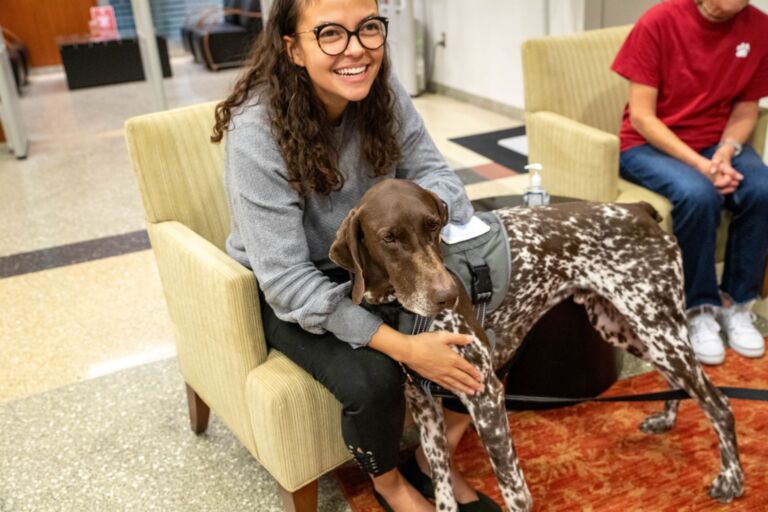Editor’s note: this is a follow-up to our first story, published on July 16, 2020.
Law schools have had the summer to prepare for holding classes amid the coronavirus. This week we’re exploring what students can expect when returning to class this fall and how law schools are looking out for its students.
What to expect on campus this fall
In his book, “1L of a Ride,” McClurge makes it clear that the first year of law school is already turbulent enough with the Socratic method, outlining and exams. Now, however, a once-in-a-century pandemic has been thrown into the mix.
“It will be more difficult. No doubt about it,” McClurg said of school in the COVID-19 world. “That was already shown in the spring semester. A lot of students and professors struggled emotionally.”
So much about law school is now unrecognizable, disjointed and surreal. Masks? Social distancing? Um, hand washing advice?
But law schools are looking to make the experience at least somewhat, well, tolerable. Or less sucky.
Some schools started early so the fall semester will end by Thanksgiving. That’s the approach being taken by Norte Dame Law School. It rearranged its schedule to start classes the week of Aug. 10, two weeks early.
That way, students won’t have to travel back to campus after the holiday, during which many may be mingling with family and facing possible infection, said Dennis Brown, a university spokesman.
Schools have put considerable thought into preparing for students. At Saint Louis University School of Law, faculty and staff actually practiced wearing masks in a classroom setting to see how exchanges would go, said Marcia McCormick, associate dean for academic affairs.
The law building was recently refurbished, which improved acoustics, and there are microphones in the ceilings, so they pick up voices well, she said.
At her school, health law and public health law faculty were tapped for expertise. And that’s quite the expertise. The school’s health law program is one of the top in the nation.
For the most part, students wanted to be back on campus, McCormick said.
“People are nostalgic for times before the pandemic,” she said. “They’re optimistic and hopeful.”
Oh, here’s another bonus. Schools are cleaner. Much cleaner. They sparkle as efforts have been heightened to disinfect common areas.
Here’s what the Sandra Day O’Connor College of Law at Arizona State University is doing:
“All ASU buildings — including residence halls and classrooms — will receive a deep cleaning with hospital-grade products followed by a fogging system cleanse prior to occupancy this fall. During the semester, all buildings will receive a deep cleaning once per day, and high-touch surfaces will be cleaned twice daily.”
And here’s another bonus: Classes are more intimate because of social distancing requirements.
The downside? Oh, you’re wearing a mask. And if you wear glasses, well, we feel for you. (They fog up.)
At least students attending University of South Carolina School of Law will get free — washable and reusable — masks.
How schools are looking out for students
Many schools have been trying to help students deal with the pressure and stress related to law school during a pandemic. A large number set up emergency funds, which could be used to pay for critical needs, such as Wi-Fi and computer upgrades.
Even food needs were considered. So was gas money for students needing to get medical care. At City University of New York School of Law, students could be eligible for grants at up to $1,500.
AccessLex Institute, a nonprofit organization that helps law school students transition to professional careers, created a $5 million Law Student Emergency Relief Fund. Each ABA-approved school could seek a $25,000 award to donate to students.
Schools also reached out to alumni and law-affiliated organizations for help. The pandemic nixed many summer job opportunities, so they asked if any
jobs could be had, last-minute.
University of San Diego School of Law posted this: “Could your law firm or company hire a student to perform legal research or draft legal documents this summer? Students are open to hourly project work, remote work or any other work arrangement that would allow them to gain experience and earn needed income at this time.”
At least two law schools, New York Law School and Maurice A. Deane School of Law at Hofstra University in Hempstead, N.Y., offered special summer courses.
New York Law School offered an eight-week online program designed to give 120 law students a taste of the Big Law summer associate experience. The Venable law firm partnered with the school, and all the assignments were focused on COVID-19 challenges.
Students who completed the program earned three experiential learning credits toward graduation. Program tuition and fees were paid by alumni donors.
“The pandemic understandably altered summer opportunities for students, many of whom saw summer jobs or externships vanish,” said Anthony Crowell, New York Law School dean and president. “Creative minds came together to create a first-rate experience to advance our students’ knowledge, skills and professional networks and profiles.”
New York Law School hopes to do similar programming in the future.
Hofstra University offered a free, 10-week Summer Skills Institute, which included online training modules in legal technology, transactional law and litigation. The institute was modeled after programs offered by leading law firms to train their summer and junior associates. More than 130 students registered for one or more of the free classes that were offered online.
“Employers want to hire students with real-world skills and who add value by identifying issues, said Chris Caruso, senior associate dean for career services and compliance. “(This program) will provide students with added practical skills . . . and give students a leg up by familiarizing them with documents and issues that might not be covered in a traditional law school class.”







